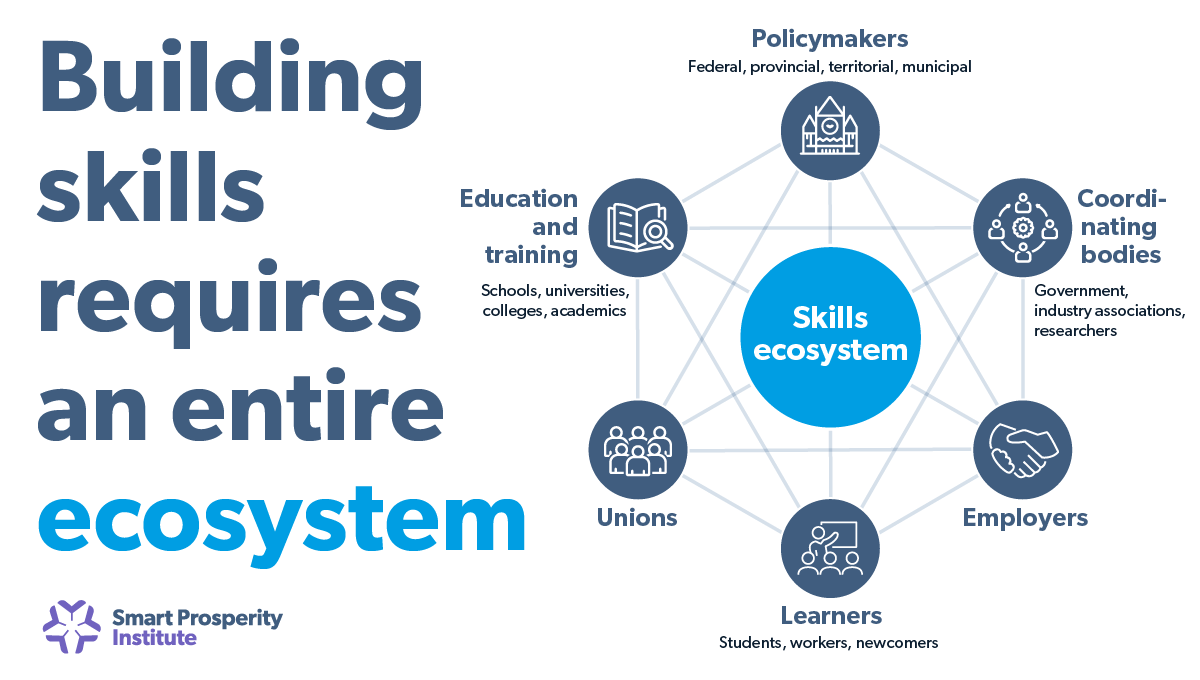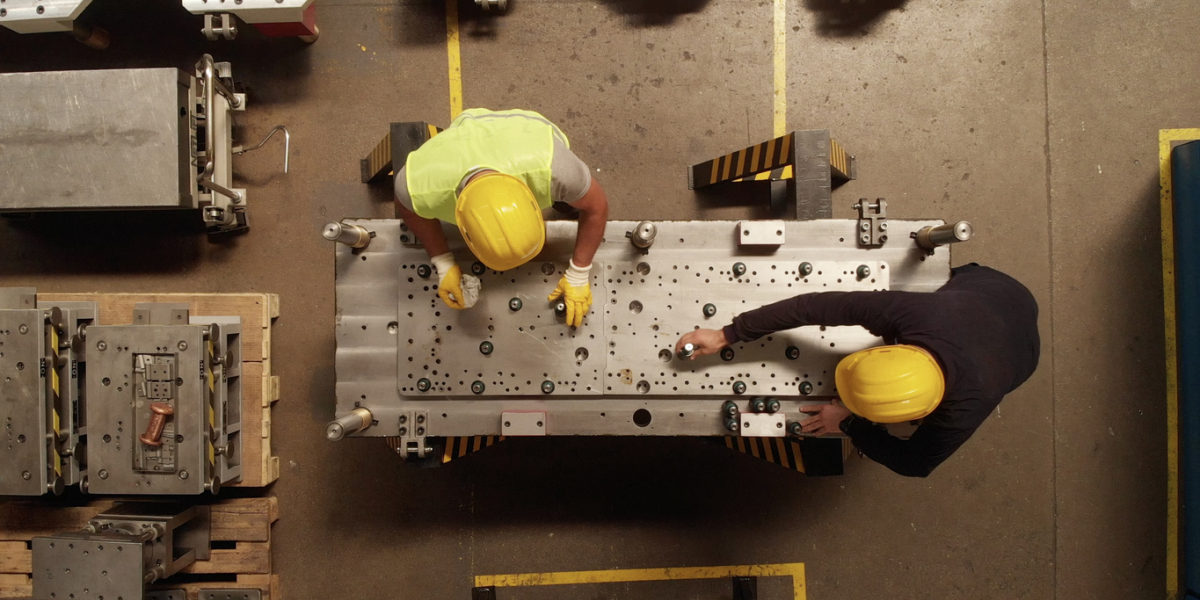When the Smart Prosperity Institute conducts research into the skills and labour challenges of clean economy opportunities like zero-emissions vehicles, plant-based protein and mass timber, we use a skills ecosystem approach. With an ecosystem approach, we can easily track what’s happening in a particular industry or sector, what responsibilities each group of stakeholders has and how to address the challenges of any given clean growth sector.

Canada’s skills ecosystem is made up of employers, learners, education and training providers, unions, coordinating bodies and policymakers. Below, we explain how each actor can play an important role in helping students and workers gain the green skills they need to drive Canada’s low-carbon transition.
Employers
They’re essential to encouraging skills development in and out of the workplace and can help make it easier for their employees to learn a new skill or accreditation.
Learners
They include new workers or students trying to break into an industry, or existing workers retraining or upskilling, such as on new technologies. Skills training programs must understand the motivations and needs of various types of learners to be successful.
Education and training providers
Colleges and universities are fundamental to the skills ecosystem. They need to know what skills are needed for the workplaces of the future and how to teach them. We found that giving learners the opportunity to learn skills in a work-integrated style is very effective.
Unions
These serve an essential role in organizing workers within an industry and helping their members as they train and upskill for new or existing roles. Unions can also evaluate and provide credentials for their members to better identify and categorize skills and capacities.
Coordinating bodies
Bodies such as industry associations or research networks connect disparate actors within an industry or sector and identify broad trends. They can conduct investigations and public information campaigns to raise awareness about a particular challenge or opportunity.
Policymakers
Policymakers at all levels of government help to set the ground rules for an emerging clean-growth opportunity. They help to address any identified challenges or gaps through funding, support programs and regulation. They are needed at many steps in the skills ecosystem to help reduce friction, provide up-to-date labour market information and ensure hard (like bridges, roads, and ports) and soft (like financial systems, regulatory structures, and education) infrastructure meets local needs.
We worked with the Future Skills Centre to publish a series of reports focused on skills in Canada. This included estimating how prepared different provinces were to support skills development (Ready for Green Jobs) and three regional studies: zero-emissions vehicles in Ontario, plant-based protein in Manitoba and Saskatchewan, or mass timber in British Columbia. We also built off this work by preparing a how-to guide for groups leading and supporting green labour and skills transitions using the ecosystem model called Sustainable Jobs 101.
For more insights and research about skills, jobs, and clean growth, please follow the Smart Prosperity Institute, explore our work on Canada's green skills transition, and subscribe to our newsletter.


